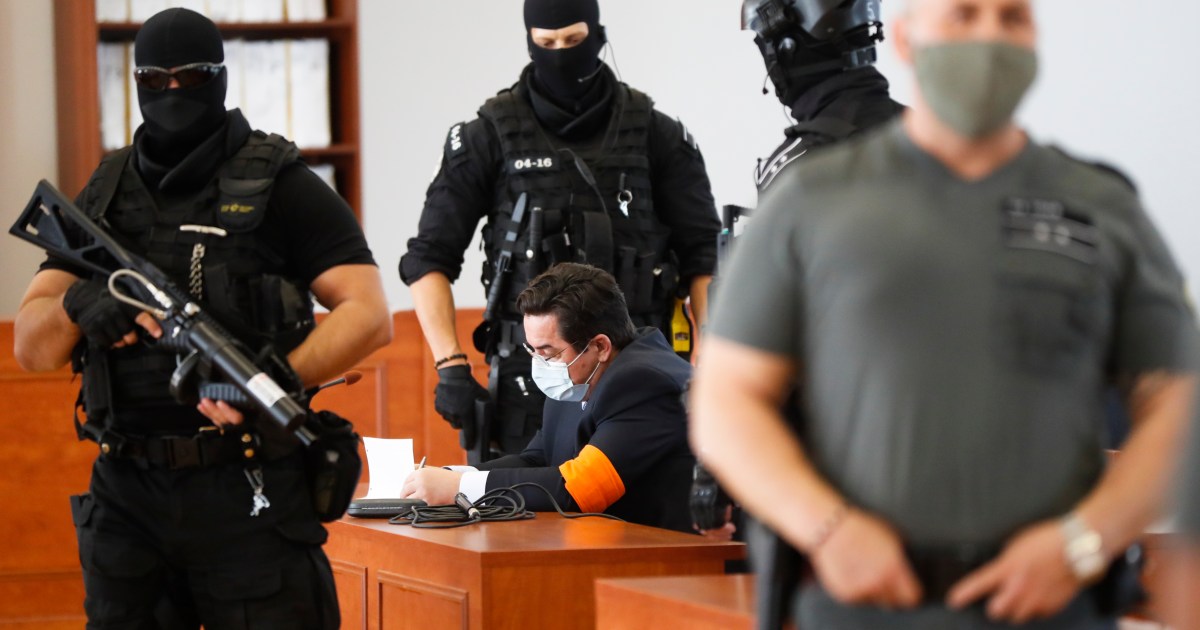Key Pakistan leaders behind opposition bid to remove PM Khan
The Pakistan president has dissolved the parliament on the advice of Prime Minister Imran Khan, who called for fresh elections after a no-confidence motion brought by the joint opposition was dismissed by the deputy speaker of the National Assembly.
The deputy speaker declared the motion unconstitutional, saying it is part of a plot by what he called “foreign powers” to interfere in Pakistan’s democracy.
The opposition believes it had the numbers to remove Khan after allies from the ruling coalition switched sides.
Al Jazeera’s Osama Bin Javaid said the latest political developments have thrown Pakistan into a constitutional crisis.
“If we hear from the opposition, they are still at the National Assembly continuing with the session, they have elected their own parliamentary speaker and there is a shadow session under way. 195 members, according to the opposition, are present there,” Bin Javaid, reporting from Islamabad, said.
“So, they have clearly more than 172 members needed to elect the prime minister.”
The drama caps weeks of machinations by the opposition to unravel a tenuous coalition Khan had built around his Pakistan Tehreek-e-Insaf (PTI) party to become prime minister in 2018.
Following are brief profiles of the key players in the saga:
Shehbaz Sharif
The brother of three-time Prime Minister Nawaz Sharif – who has been disqualified from ever again running for office and is currently in exile in the United Kingdom – Shehbaz emerged as the main candidate to replace Khan as prime minister, had the no-confidence motion succeeded.
The 70-year-old is a political heavyweight in his own right, however, having served as chief minister of Punjab, the family’s power base, and now president of the Pakistan Muslim League-N (PML-N).
A tough administrator with a reputation for passionate outbursts, he is known for quoting revolutionary poetry in speeches and is considered a workaholic.
He remains popular despite lurid tabloid headlines about multiple marriages and a property portfolio that includes luxury apartments in London and Dubai.
Asif Ali Zardari
Hailing from a wealthy Sindhi family, Zardari was known more for his playboy lifestyle until an arranged marriage saw him wed Benazir Bhutto shortly before she became prime minister for the first time.
He took to politics with gusto, earning himself the nickname “Mr Ten Percent” for the cut he allegedly took from government contracts, and was twice jailed on charges related to corruption, drug smuggling and murder – although never faced trial.
The 67-year-old became co-chairman of the Pakistan Peoples Party (PPP) after the assassination of Benazir in 2007, and became president of the country a year later in a power-sharing deal with the PML-N.

Bilawal Zadari Bhutto
The son of Benazir Bhutto and Asif Zardari, Bilawal is political royalty and he became chairman of the PPP aged just 19 following his mother’s assassination.
The Oxford-educated 33-year-old is considered a progressive, in his mother’s image, and has frequently spoken out on the rights of women and minorities.
With more than half of Pakistan’s population aged 22 or below, Bhutto’s social media savvy is a hit with the young, although he is frequently mocked for a poor command of Urdu, the national language.
Maulana Fazlur Rehman
After starting political life as a firebrand hardliner, the Muslim religious leader has softened his public image over the years with a flexibility that has seen him forge alliances with secular parties on the left and right of the spectrum.
With the ability to mobilise tens of thousands of school students, his Jamiatul Ulema-e-Islam (F) party never musters enough support for power on its own, but is usually a key player in any government.
His enmity with Khan runs deep, calling him “a Jew” in reference to his former marriage to Briton Jemima Goldsmith.
Khan, in return, calls him “Mullah Diesel” for his alleged participation in corruption involving fuel licences.



